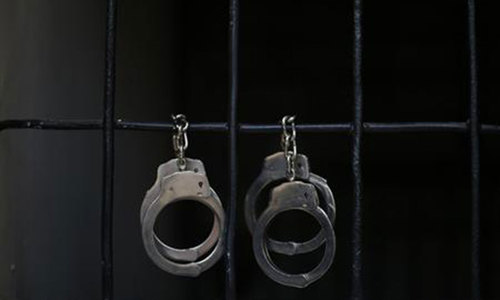ISLAMABAD: The Senate’s functional committee on human rights adopted the Criminal Law (Amendment Bill) 2015 to provide for the protection of children, after discussions on whether amendments to the Pakistan Penal Code (PPC) was a federal subject or a provincial one following the 18th Amendment and if the provinces had been consulted on the matter.
“This law has been pending for a few years and is needed for the protection of children. However, it’s implementation will be a challenge especially where there is a culture of not putting laws into practice,” said committee chairperson MQM Senator Nasreen Jalil.
Two important amendments were made to the bill. The minimum age of criminal responsibility was raised from seven to 10 years and in the case of juveniles, from 12 to 14 years.
Minimum age of responsibility raised and serious offences against children criminalised
Former president of the Supreme Court Bar Council Tariq Mehmood told Dawn that a child less than 10 years of age will be considered innocent while an accused under 14 will have to prove innocence, Amendments were also made to cover a number of serious offences against children including child pornography and exposure to seduction or cruelty. Exposing a child to obscene and sexually explicit material has been criminalised, with punishment. The law also criminalises child pornography and has proposed punishments. Tariq Mehmood said there was always a provision in the law to improve it and make it better for the protection of both women and children.
Minister for Human Rights Zahid Hamid told the committee that because of the Kasur incident of child abuse, the government wanted to have a law in place for child protection. The committee also took the Actions in Aid of Civil Power Regulation 2011 for consideration and to look over the consequences of its implementation.
A representative from the Ministry of States and Frontier Regions (Safron) Naveed Iqbal Abbasi said his ministry was only concerned with legislation, the implementation of which was the responsibility of law enforcement agencies.
The committee decided that as the lead ministry, Safron should seek views of concerned ministries regarding the implementation of the regulation and to inform the committee of these in its next meeting. The committee directed the Safron minister to be present for this.
Senator Farhatullah Babar then asked for the ministry to prepare answers to his questions in the next meeting. The questions he asked were about the number of people detained from February 1, 2008 to the date from which the 2011 regulation was given retroactive effect.
He asked about the status of the cases against them and if they were dealt with in military, terrorism or ordinary courts. The PPP senator asked if the Khyber Pakhtunkhwa governor had conferred additional powers upon armed forces or if he had amended the schedule to the regulation.
Talking about how the regulation binds the government to set up oversight boards, the senator asked if such boards had been set up periodically to review the condition of internment centres and take notice of complaints regarding the treatment and torture of the detainees. He also asked if the federal government had notified rules which it was supposed to in order to implement the regulation.
On Farhatullah Babar’s recommendations, two cases were referred to the National Council for Human Rights for investigation. These included the disappearance of human rights activist Rizwan Niazi in November 2015.
The other case was of a comaplaint by a woman from Balochistan accusing a law enforcement agency of detaining two of her sons since February 2014 without legal proceedings against them, allegedly at the behest of a politician.
He recalled that the Senate, acting as a committee of the whole on legal reforms last month, had taken up the issue of enforced disappearances.
“The Senate directed the government to give its views on recommendations made by the Human Rights Committee on how to address the issue of enforced disappearances and these include legislation to bring state agencies under oversight,” he said.
Published in Dawn, March 3rd, 2016
















































